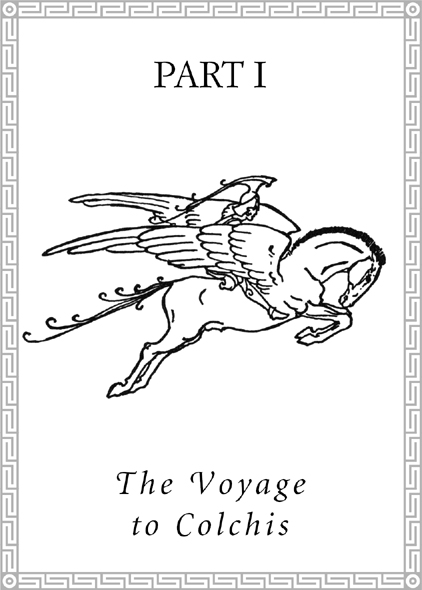
This is a work of fiction. Names, characters, places, and incidents either are the product of the authors imagination or are used fictitiously. Any resemblance to actual persons, living or dead, events, or locales is entirely coincidental.
Introduction copyright 2010 by Rick Riordan
All rights reserved. Published in the United States by Random House Childrens Books, a division of Random House, Inc., New York. Originally published in the United States by Macmillan Publishing Company, New York, in 1921.
Random House and the colophon are registered trademarks of Random House, Inc.
Visit us on the Web! www.randomhouse.com/kids
Educators and librarians, for a variety of teaching tools, visit us at www.randomhouse.com/teachers
Library of Congress Cataloging-in-Publication Data
Colum, Padraic, 18811972.
The Golden Fleece and the heroes who lived before Achilles / by Padraic Colum;
with an introduction by Rick Riordan.
p. cm.
Originally published: New York: Macmillan Pub. Co., 1921.
eISBN: 978-0-375-89757-3
1. Argonauts (Greek mythology)Juvenile literature.
2. Mythology, GreekJuvenile literature. I. Title.
BL820.A8C64 2010
292.13dc22
2009050546
Random House Childrens Books supports the First Amendment and celebrates the right to read.
v3.1
To the children of
Susan and Llewellyn Jones


CONTENTS

6. How Orpheus the Minstrel Went Down
to the World of the Dead
INTRODUCTION
 When I was a kid, my favorite Greek myth was of Jason and the Argonauts. Sure, Ill admit that this was partly because of the 1963 film, which played on television over and over and featured those cutting-edge Claymation special effects! But my fascination was also because of the book you now hold in your hands: The Golden Fleece and the Heroes Who Lived Before Achilles by Padraic Colum.
When I was a kid, my favorite Greek myth was of Jason and the Argonauts. Sure, Ill admit that this was partly because of the 1963 film, which played on television over and over and featured those cutting-edge Claymation special effects! But my fascination was also because of the book you now hold in your hands: The Golden Fleece and the Heroes Who Lived Before Achilles by Padraic Colum.
This book was my doorway into a world of magic, mystery, and monsters, flawed heroes and colorful villains, adventure, deceit, romance, courage, and betrayalin short, everything that makes Greek mythology such an enduring source of inspiration and entertainment.
The Irish poet and playwright Padraic Colum wrote this book in the 1920s, and the language is grand and old-fashioned, but dont let that put you off. The book reads remarkably well, even after almost a century. The language is well suited for a story of ancient times and long-ago deeds, but Padraic Colum knows he is writing for young readers, and he never forgets his audience. In his comments on the dust jacket for the first edition, Colum says, If children are to will out of their imagination and create out of their will, we must see to it that their imaginations are not clipped and not made trivial. Those words apply today as much as ever.
Greek mythology remains powerful and relevant because it opens the imagination. We can sail the Argo, fight the great bronze giant Talos, deal with the sorceress Medea, reclaim a kingdom, and wonder if we could do better than Jason. This book will let your imagination soar, and will dare you to create your own adventures of the imagination. How do I know this? Because when I was a young boy, this book helped me dream of writing myths, and eventually grow up to be a teacher of English and history. When I became a father, I remembered Padraic Colum and told my son mythological bedtime stories, eventually creating my own original Greek myths for himthe Percy Jackson storieswilled out of my imagination and created out of my will. It seems only fitting that I have come full circle, and now have the honor of introducing Padraic Colums book, which helped start me on that journey.
Jason himself is ample reason to read this book. He has a large enough personality to carry a dozen stories. He is kind, courteous, brave, and loyal, but also grasping, deceitful, and ambitious. His relationship with the lovely yet cruel Medea is the ultimate tragic love story. Even more importantly, Jason is a full mortal, unlike most of the demigod heroes in Greek mythology. His parentage is fully human, and he comes across as possibly the most human, most understandable hero of all.
But The Golden Fleece is also remarkable because it is the all-star story of Greek mythology. To gain the Golden Fleece and reclaim his kingdom, young Jason must gather a dream team of Greek heroes to sail with him on the Argo to the ends of the earth. We meet Atalanta, the most famous female Greek warrior; Theseus, legendary hero of Athens; Orpheus, famed musician; Bellerophon, slayer of the Chimera; and the great Heracles himself, the most renowned of all heroes. The Argonauts are the ultimate elite force, and the dangers awaiting them are appropriately dire: the Clashing Rocks, treacherous nymphs, ravenous Harpies, fire-breathing bulls, skeleton warriors, and, of course, a dragon. It is easy to see why this story has endured over the centuries, and is as much a favorite with children today as it was in the Bronze Age.
I challenge you to read on! Travel back thousands of years to a time when monsters were real and gods walked the earth, yet people were still the samedriven by greed, love, bravery, and jealousy. In the pages of this book, you will find many wonders, but the greatest wonder is how these ancient stories can still fire the modern imagination. Are you brave enough to sail on the Argo? Then come aboard for the adventure of a lifetime!
Rick Riordan


1
 T
The
Youth
Jason
A MAN in the garb of a slave went up the side of that mountain that is all covered with forest, the Mountain Pelion. He carried in his arms a little child.
When it was full noon the slave came into a clearing of the forest so silent that it seemed empty of all life. He laid the child down on the soft moss, and then, trembling with the fear of what might come before him, he raised a horn to his lips and blew three blasts upon it.
Then he waited. The blue sky was above him, the great trees stood away from him, and the little child lay at his feet. He waited, and then he heard the thud-thud of great hooves. And then from between the trees he saw coming toward him the strangest of all beings, one who was half man and half horse; this was Chiron the centaur.


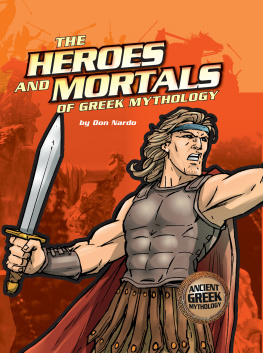
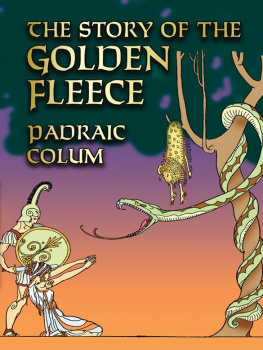
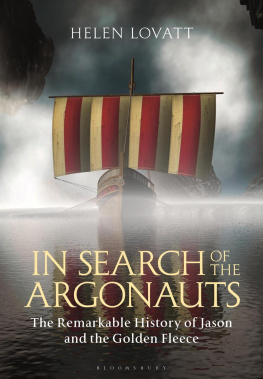
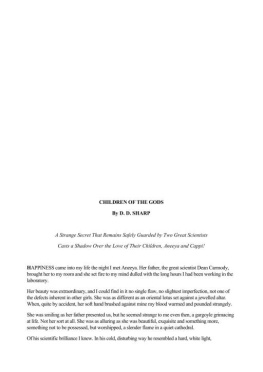
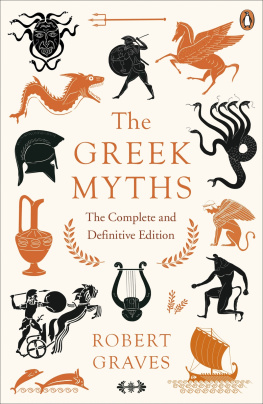
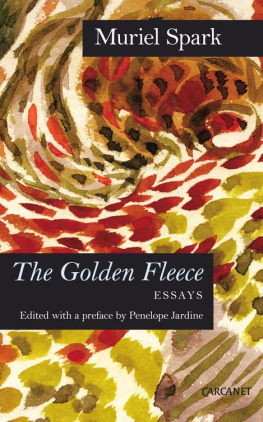
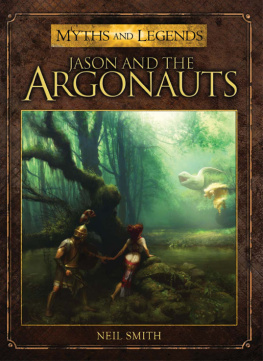
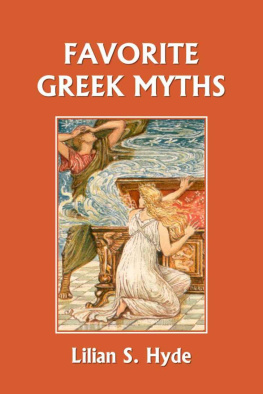
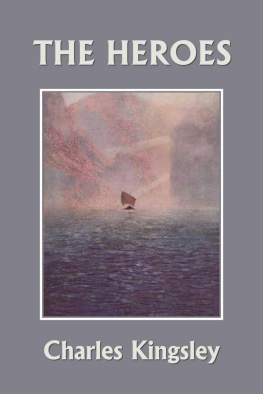
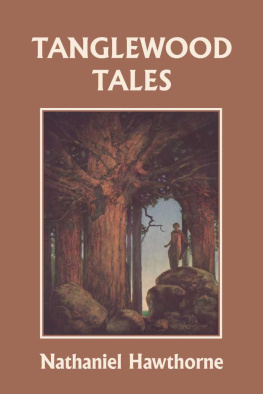
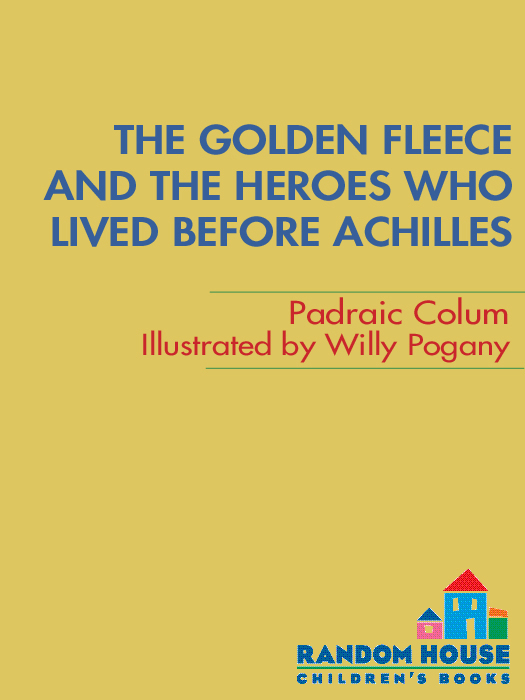
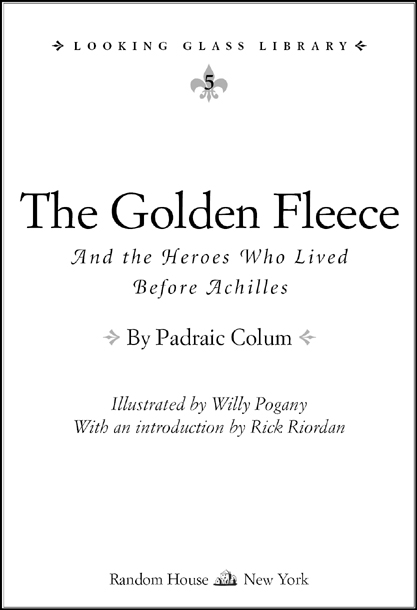


 CONTENTS
CONTENTS 
 When I was a kid, my favorite Greek myth was of Jason and the Argonauts. Sure, Ill admit that this was partly because of the 1963 film, which played on television over and over and featured those cutting-edge Claymation special effects! But my fascination was also because of the book you now hold in your hands: The Golden Fleece and the Heroes Who Lived Before Achilles by Padraic Colum.
When I was a kid, my favorite Greek myth was of Jason and the Argonauts. Sure, Ill admit that this was partly because of the 1963 film, which played on television over and over and featured those cutting-edge Claymation special effects! But my fascination was also because of the book you now hold in your hands: The Golden Fleece and the Heroes Who Lived Before Achilles by Padraic Colum.
